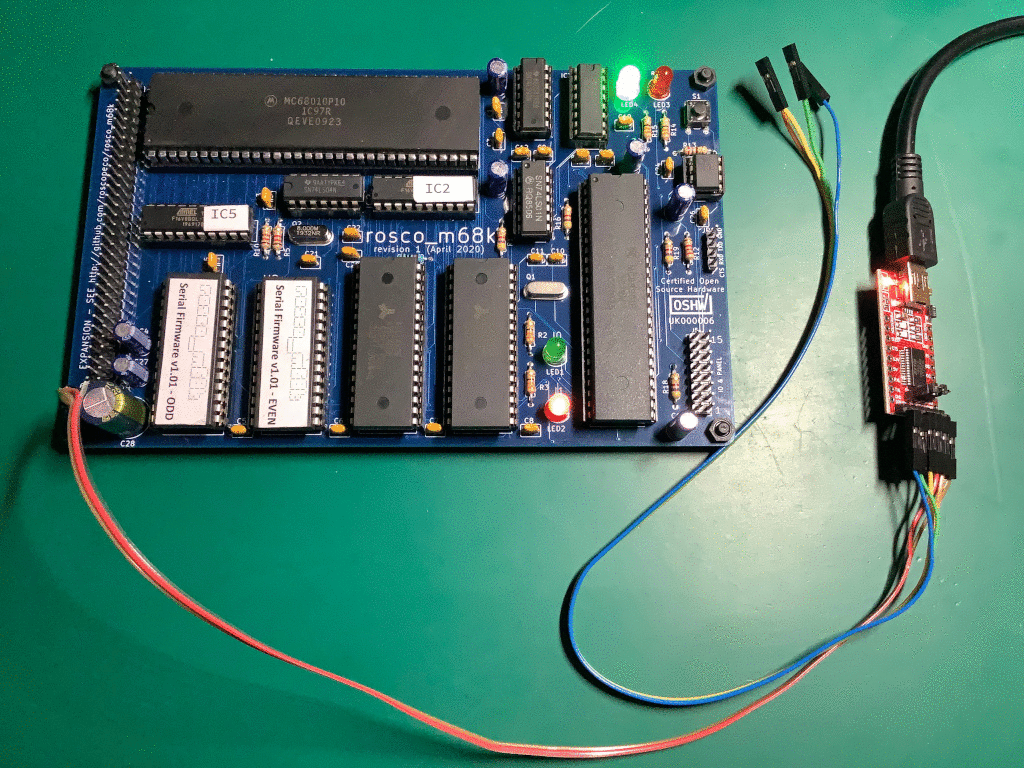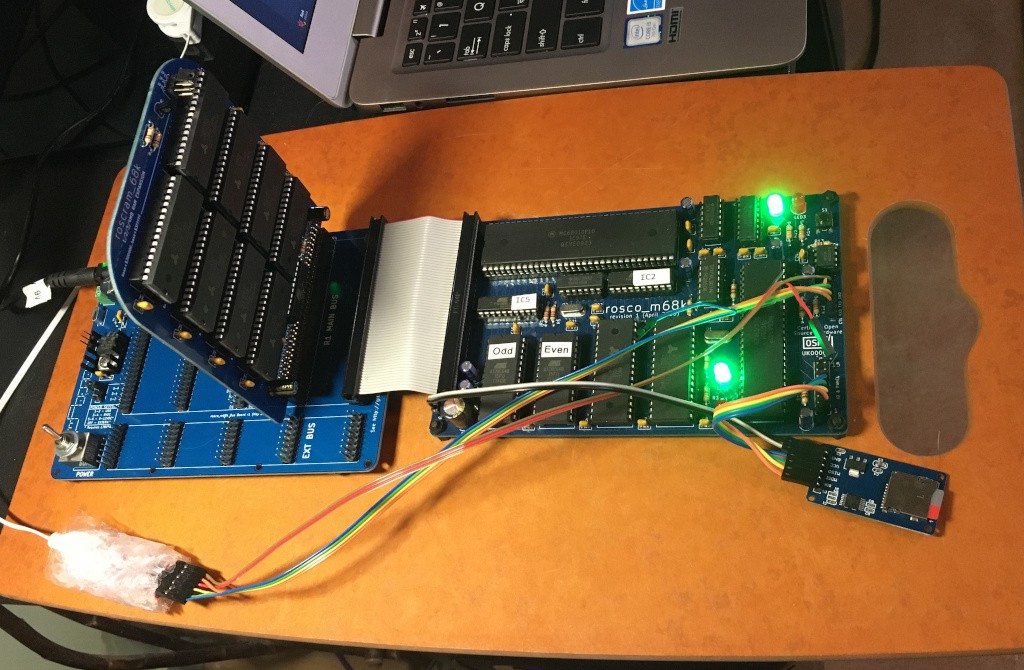With some extra "stay at home" time on my hands, I was looking around for a retro project to work on (and have some fun by learning something). While I enjoy 8-bit CPUs and there are a lot of great 8-bit 6502 and Z-80 (and other) retro system projects on HaD and around the Internet, I haven't seen as many 16-bit ones - especially 68000 family. However, one that did catch my eye was the rosco_m68k project by @Ross Bamford.
I have a lot of affection for the 68000 microprocessor family, going back a long time. I think it started way back when I read this 1980 Kilobaud Microcomputing magazine article about "16-bit Super Processors" (and even as a kid reading this, the 68000 seemed "clearly superior" to me). I also had the good fortune to have a preliminary edition of the "Motorola 68000 16-bit Microprocessor User's Manual" (with the black cover) "fall into my hands" in 1980 - which turned out to be somewhat life-changing (during a car ride from a friends father, who owned an early computer company, he had a copy lying on the back seat next to me - and when I asked about it, he gave it to me). I studied that manual for years and learned a lot about the 68000 and computers in general before I ever got my hands on an actual 68K CPU (the first was a 68008 card for an Apple II, but then later on I was an early Amiga developer etc.).
After following the rosco_m68k project for a while, I decided to jump in and purchased a kit from Tindie and joined the Discord chat server (which has been quite friendly).
So far it has been a fun experience. Within the first week or so of hanging out on the rosco_m68k Discord chat server (while waiting for my kit to arrive) there were several good discussions. In fact, one discussion has led me to start my own little hardware project for use with rosco_m68k ("Xosera" - I'll have more on that with a project post soon).
When my rosco_m68k kit arrived, I found it to be straightforward and enjoyable to assemble. Ross has done a nice job making it easy (and he has been good about "tweaking" things based on feedback, so I found it pretty "smooth"). Since I was a bit too impatient to get started, I didn't even notice the link to his instructions (and it still was no problem - with PCB clearly marked, a "chip map", labelled chips where needed and even labelled resistors - so no need for "color-code" decoding). It booted up for me on the "first-try".

Since then, I have installed the 68k-toolchain and have been able to build and run the examples on GitHub.
For fun, I ported an old version of the Drystone benchmark to rosco_m68k (and the hard part there was mostly getting GCC to compile the ancient C code, not the rosco_m68k). Rosco looks pretty good when benchmarked next to other classic 68k machines (and I hear rumors of a blazing 10MHz...).
At this point my rosco_m68k system has grown a bit, with SD card storage (and development firmware for it), a backplane and 4MB RAM expansion (so 5MB total). I also have a V9958 VDP video board kit on its way as I write this.

Pretty soon, it looks like I'll be ready to write a little 68k game or "demoscene" demo. 😅
 Xark
Xark
Discussions
Become a Hackaday.io Member
Create an account to leave a comment. Already have an account? Log In.